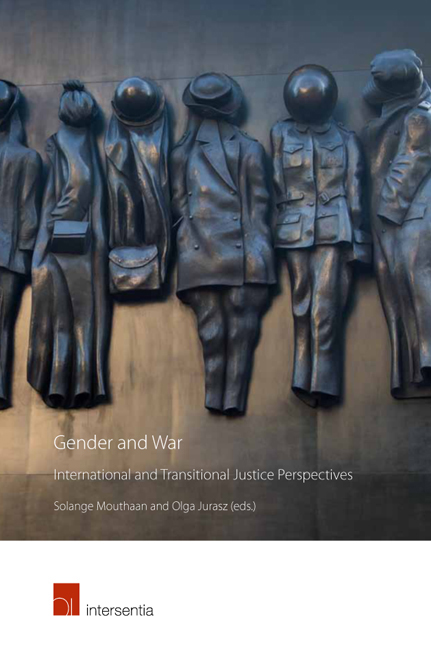Book contents
- Frontmatter
- Contents
- List of Cases
- List of Abbreviations
- List of Contributors
- Introduction
- PART I WOMEN'S INVOLVEMENT IN ARMED CONFLICT
- PART II MEN AND CHILDREN'S EXPERIENCES OF ARMED CONFLICT
- Towards a Gender Analysis of Sexual Violence Against Men and Boys in Conflict: Incorporating Masculinities Theory into Feminist Theories of Sexual Violence Against Women
- Children and Armed Conflict: Pitfalls of a ‘One Size Fits All’ Approach
- PART III GENDERED EXPERIENCES OF INTERNATIONAL CRIMINAL JUSTICE
- PART IV GENDERED EXPERIENCES OF TRANSITIONAL JUSTICE
- PART V CONCLUSIONS
- About the Editors
Towards a Gender Analysis of Sexual Violence Against Men and Boys in Conflict: Incorporating Masculinities Theory into Feminist Theories of Sexual Violence Against Women
from PART II - MEN AND CHILDREN'S EXPERIENCES OF ARMED CONFLICT
Published online by Cambridge University Press: 30 March 2019
- Frontmatter
- Contents
- List of Cases
- List of Abbreviations
- List of Contributors
- Introduction
- PART I WOMEN'S INVOLVEMENT IN ARMED CONFLICT
- PART II MEN AND CHILDREN'S EXPERIENCES OF ARMED CONFLICT
- Towards a Gender Analysis of Sexual Violence Against Men and Boys in Conflict: Incorporating Masculinities Theory into Feminist Theories of Sexual Violence Against Women
- Children and Armed Conflict: Pitfalls of a ‘One Size Fits All’ Approach
- PART III GENDERED EXPERIENCES OF INTERNATIONAL CRIMINAL JUSTICE
- PART IV GENDERED EXPERIENCES OF TRANSITIONAL JUSTICE
- PART V CONCLUSIONS
- About the Editors
Summary
INTRODUCTION
Although international law has recognised the use of sexual violence against women and girls during conflict, the International Criminal Court and international tribunals have largely failed to recognise or adequately theorise rape or sexual violence against men and boys, ignoring or denying its gendered nature. The Rome Statute of the International Criminal Court (ICC) defines rape and sexual violence in gender-neutral terms, permitting prosecution for the sexual violation of males. Yet in Prosecutor v. Muthaura, Kenyatta & Ali Kenyatta, the Pre-Trial Chamber of the ICC found that the forced circumcision and penile amputation of Luo men in Kenya did not constitute sexual violence within the meaning of the Rome Statute. The Kenyatta decision exemplifies the failure of the ICC and international tribunals to adequately conceptualise the gendered nature of sexual violence against men and its relationship to sexual violence against women and girls.
Like sexual violence against women, sexual violence against men deserves similar condemnation by the international community. For such crimes against men to be punished, however, prosecutors and courts need to understand how sexual violence against men serves a gendered purpose and results in gendered harms that merit vindication. While feminist and human rights activists and theorists have worked diligently to educate courts and prosecutors about sexual violence against women and girls, there has been little attention focused on the nature and harm of sexual violence against men and boys. In 2014, the ICC's Office of the Prosecutor (OTP) issued a Policy Paper on Sexual and Gender- Related Crimes (‘Policy Paper ‘or’ OTP Policy Paper’) that announced its adoption of a ‘gender analysis’ to better contextualise and prosecute crimes of sexual violence against both men and women. The Policy Paper, however, failed to offer a nuanced analysis of sexual violence against men and boys.
Masculinities theory is a useful tool to build upon feminist theories of sexual violence to help explain to courts the relationship between gender, power and sexual violence against men during war. As Miranda Alison observes, feminist theories of wartime rape of women and girls have tended to explain sexual violence as a manifestation of unequal gender relations between men and women, ignoring male victims.
- Type
- Chapter
- Information
- Gender and WarInternational and Transitional Justice Perspectives, pp. 95 - 118Publisher: IntersentiaPrint publication year: 2019
- 2
- Cited by



